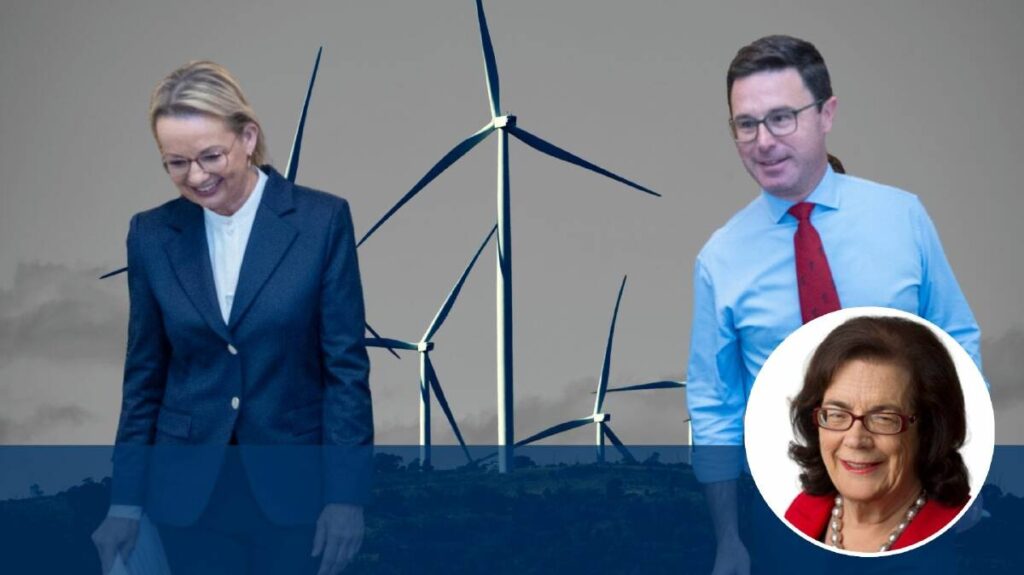
UPDATE: The Liberal Party is grappling with an urgent crisis over climate policy as internal divisions threaten its leadership. Just this week, tensions escalated around the controversial net zero by 2050 target, prompting fears of a significant fallout.
In recent comments, Sussan Ley, the current leader, reflected on past leadership challenges during the Malcolm Turnbull era, stating, “unfortunately Malcolm couldn’t unite the joint party room on energy policy.” This historical perspective highlights a troubling pattern, as the party faces a similar existential threat today.
As the party grapples with its future, members are increasingly polarized on climate action. The divisive rhetoric surrounding net zero has spread like wildfire, leaving many MPs feeling anxious about attending branch meetings. The urgency for a unified strategy has never been more critical, as failure to resolve these internal conflicts could lead to a catastrophic split within the party.
Among the hardliners is Angus Taylor, who remains staunchly opposed to net zero but is open to potential compromise. Meanwhile, Barnaby Joyce has voiced intentions to exit the Nationals party room, citing climate policy as a primary concern. The internal struggle within the Coalition is palpable, with some members likening their situation to “lemmings over the cliff” and “dogs returning to their vomit.”
Next week, the Coalition’s backbench policy committee will convene, led by Jane Hume and Simon Kennedy, to discuss the pressing climate agenda. Hume previously stated, “I have absolutely no doubt the technology will be there to deliver net zero by 2050,” emphasizing the need for a cohesive approach.
On the other side of the aisle, Dan Tehan is spearheading a taskforce to develop an energy policy, but time is of the essence. His previous comments indicated a more relaxed approach, which is no longer feasible. The pressure is mounting, and the next two weeks will be pivotal in shaping the opposition’s strategy.
Amidst this turmoil, Murray Watt, the Environment Minister, is racing against the clock to introduce legislation aimed at reforming the Environment Protection and Biodiversity Conservation (EPBC) Act. This reform is a crucial test for the government, with the potential to impact housing and energy projects significantly.
With Labor needing support from either the opposition or the Greens in the Senate, negotiations are underway. Ley criticized the proposed bill as a “handbrake on investment,” while Greens spokesperson Sarah Hanson-Young condemned it for favoring industry over environmental protections.
As the Liberal Party teeters on the edge of a crisis, the implications of their climate policy decisions will resonate far beyond their internal struggles. With critical negotiations and potential legislative changes on the horizon, the political landscape is shifting rapidly.
Stay tuned for updates as this developing story unfolds. The stakes are high, and the outcome could reshape Australia’s political scene for years to come.






